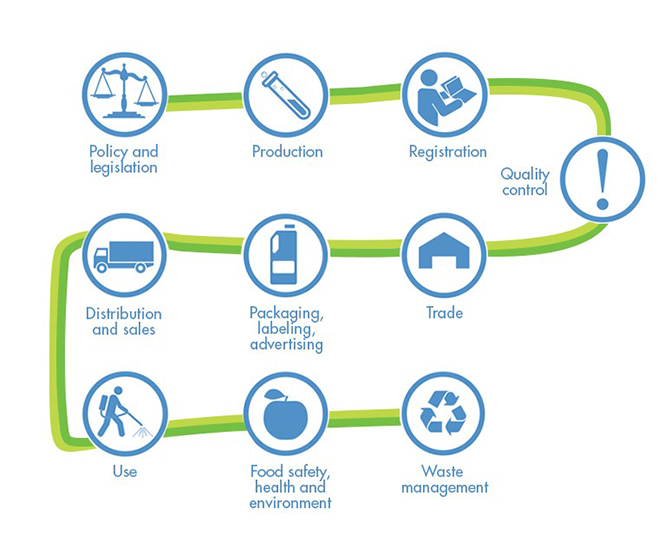Pesticides kill pests but also their natural enemies. Their inappropriate uses can harm farmers, consumers, and the environment. Over-reliance on pesticides impairs the natural balance of the crop ecosystem. It also contributes to a vicious cycle of pest resistance, which can lead to increased pesticide use with little change in crop losses to pests and diseases. Reducing pesticide risks has been one of FAO’s core strategies for achieving sustainable crop production, intensification and diversification.
FAO addresses pesticide management in a holistic manner by considering all the required regulatory and technical measures in the lifecyle of pesticides to ensure their safety and efficacy with no adverse effects on health and the environment, including humans, animals, plants and ecosystems.
FAO works towards achieving pesticide risk reduction through a sound lifecycle management approach, including:
- legislation and regulations
- institutional capacity building
- selection of lower-risk products
- rational use of pesticides
- proper pesticide related waste management
- global coordination and regional cooperation
FAO also supports countries in direct implementation through field projects on sound pesticide management, including the removal of obsolete pesticides.
- Projects are supported by the European Union, the Global Environmental Fund (GEF) and several bilateral donors (Germany, the United States, Japan).
- Country projects are currently ongoing in Benin, Botswana, Cameroon, Eritrea, Malawi, Morocco, and Mozambique.
- Regional projects are ongoing in the Caribbean, West Africa, and in ACP countries (MEAs).
Managing pesticides throughout their lifecycle
Click on the below icons to access the Technical Guidelines


